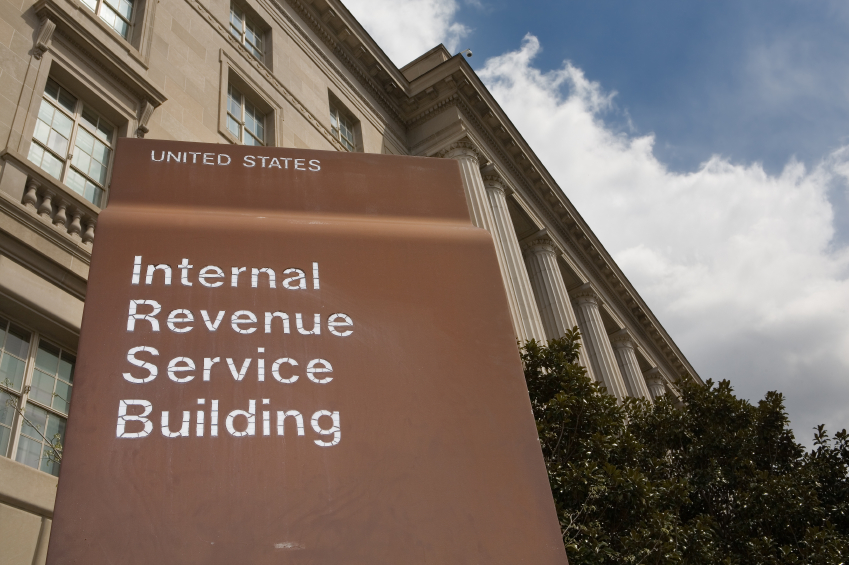IRS
IRS Targets Monetized Installment Sales in Proposed Regs
Under the proposal, monetized installment sale deals would be considered listed transactions by the IRS.
Aug. 07, 2023

The IRS and the Treasury Department issued proposed regulations on Aug. 3 that identify certain monetized installment sale deals as listed transactions—a reportable transaction that is the same as, or substantially similar to, a transaction specifically identified by the IRS as a tax avoidance scheme.
As such, participants and material advisors in a monetized installment sale transaction would be required to file disclosures with the IRS.
Taxpayers are required to file Form 8886, Reportable Transaction Disclosure Statement, to disclose information for each reportable transaction in which they participate, while material advisors must file Form 8918, Material Advisor Disclosure Statement, to disclose information about reportable transactions. Taxpayers and material advisors are subject to penalties for failing to disclose these transactions.
A taxpayer who fails to report a listed transaction faces a penalty, subject to a capped amount, equal to 75% of the decrease in tax shown on the return as a result of the transaction regardless of the outcome of an IRS challenge to the transaction.
The IRS listed monetized installment sales this year as part of the agency’s Dirty Dozen list of common tax scams and schemes.
According to the IRS, monetized installment sale transactions generally follow this or a similar scenario:
A seller of appreciated property, or a person acting on the seller’s behalf, identifies a buyer who is willing to purchase the property in exchange for cash or other property.
The seller enters into an agreement to sell the property to an intermediary in exchange for an installment obligation, which provides for interest payments from the intermediary to the seller.
The seller then purportedly transfers the property to the intermediary, although the intermediary never actually takes title or takes title to the property only briefly before transferring title to the buyer in exchange for the buyer’s cash or other property.
The seller also obtains a loan with an agreement that provides for interest payments from the seller to the lender that equal the amount of interest that the intermediary pays the seller under the installment obligation.
Both the installment agreement and the loan provide for interest due over the same periods, with principal due in a balloon payment at or near the end of the term of the installment agreement and loan.
The sales proceeds received by the intermediary from the buyer, reduced by certain fees, are provided to the lender to fund the loan to the seller or transferred to an escrow account of which the lender is a beneficiary.
The lender agrees to repay these amounts to the intermediary over the course of the term of the installment obligation.
The seller then treats the sale as an installment sale under section 453 on a federal income tax return for the year of the purported sale and defers recognition of gain until the year in which the seller receives the principal balloon payment.
The Treasury Department and the IRS are aware that promoters are marketing transactions that purport to convert a cash sale of appreciated property into an installment sale to an intermediary (who may be the promoter) followed by a sale from the intermediary to the buyer, according to a KPMG recap of the proposed regulations.
The promotional materials for these transactions assert that engaging in the transaction will allow the seller to defer the gain on the sale of the property under section 453 until the taxpayer receives the balloon principal payment in the year the installment obligation matures, even though the seller receives cash from the purported lender in an amount that approximates the amount paid by the buyer to the intermediary.
The IRS intends to use multiple arguments to challenge the reported treatment of these transactions as installment sales to which section 453 purportedly applies, including:
- The intermediary is not a bona-fide purchaser of the gain property that is the subject of the purported installment sale.
- The seller is appropriately treated as having already received the full payment at the time of the sale to the buyer because (1) the purported installment obligation received by the seller is treated as the receipt of a payment by the seller under Treas. Reg. §15a.453-1(b)(3) since it is indirectly secured by the sales proceeds, or (2) the proceeds of the purported loan are appropriately treated as a payment to the seller because the purported loan is not a bona fide loan for federal income tax purposes, or (3) the pledging rule of section 453A(d) deems the seller to receive full payment on the purported installment obligation in the year the seller receives the loan proceeds.
- The transaction may be disregarded or recharacterized under the economic substance rules codified under section 7701(o) or the substance over form doctrine. The step transaction doctrine and conduit theory may also apply to recharacterize monetized installment sale transactions.
Written comments regarding the proposed regulations must be submitted by Oct. 3. A public hearing has been scheduled for Oct. 12.
